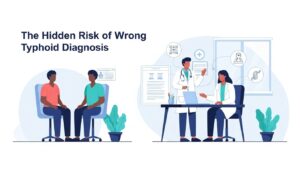Low libido, or reduced sexual desire, is a common issue among women and can be either temporary or long-term. It may stem from a variety of biological, psychological, emotional, and lifestyle factors, affecting a woman’s ability to engage in or enjoy sexual activity. Understanding the causes and remedies of low libido helps women take steps to restore their sexual well-being and improve their overall quality of life.
Causes of Low Libido in Women
1. Hormonal Imbalances
Hormones play a key role in regulating sexual desire. Estrogen, progesterone, and testosterone levels fluctuate during life events such as pregnancy, menopause, or menstruation. Lower levels of these hormones can reduce libido. Neurotransmitters like dopamine and oxytocin also influence desire, with deficiencies causing a decrease in sexual interest.
2. Psychological Factors
Mental health challenges like depression and anxiety have a significant impact on libido. Women with depression often report a lack of interest in sex, and antidepressants can further lower sexual desire. Self-esteem issues and negative body image may also contribute to diminished libido, making it difficult for women to feel sexually confident.
3. Stress and Relationship Dynamics
Relationship issues such as emotional disconnect, lack of communication, or unresolved conflicts can lower sexual desire. High levels of stress from work, parenting, or personal struggles can make it difficult to relax and engage in sexual activities.
Symptoms of Low Libido in Women
Women experiencing low libido may encounter some or all of the following symptoms:
- Little or no interest in sexual activity, including masturbation
- Few or no sexual fantasies or thoughts
- Reluctance to initiate sexual encounters
- Reduced pleasure during sex
- Decreased responsiveness to sexual or romantic cues from a partner
- Minimal physical sensations during sexual encounters
If these symptoms persist for more than six months and cause distress, the condition may be diagnosed as Hypoactive Sexual Desire Disorder (HSDD).
Who May Be at Risk?
Several factors increase the likelihood of experiencing low libido:
- Menopause: Hormonal fluctuations decrease estrogen and testosterone, causing vaginal dryness and reduced desire.
- Post-pregnancy or breastfeeding: Hormonal shifts and physical exhaustion often lower libido.
- Chronic health conditions: Diabetes, cardiovascular disease, and thyroid problems can impact sexual function.
- Medications: Antidepressants, blood pressure medications, and contraceptives may have side effects that reduce sexual desire.
- Emotional strain: Trauma, unresolved relationship conflicts, or high stress levels affect libido.
Remedies for Low Libido
1. Medical Treatments
- Hormone Therapy: Estrogen and testosterone therapy may help restore sexual desire, especially during menopause.
- Medications: Some medications target neurotransmitters like dopamine to increase libido. Consult a healthcare provider to explore suitable options.
2. Therapeutic Interventions
- Cognitive Behavioral Therapy (CBT): Helps women address negative thoughts about sex and improve sexual satisfaction.
- Mindfulness Practices: Techniques like yoga or meditation promote relaxation and body awareness, enhancing sexual pleasure.
3. Diet and Lifestyle Adjustments
- Exercise: Regular physical activity boosts endorphins, improves mood, and enhances self-confidence, positively impacting libido.
- Nutrition: A balanced diet rich in fruits, vegetables, lean proteins, and healthy fats supports hormonal balance and improves circulation. Foods high in zinc, such as oysters and seeds, have aphrodisiac effects.
- Sleep: Proper sleep is essential for maintaining energy levels and sexual arousal.
4. Addressing Stress and Relationship Issues
- Couples Therapy: Open communication can resolve conflicts and improve emotional intimacy, which is essential for sexual health.
- Stress Management: Engage in activities such as hobbies, yoga, or relaxation exercises to reduce stress and enhance libido.
Prevention and Early Intervention
- Communicate with Partners: Honest conversations about sexual needs and desires can prevent misunderstandings and maintain intimacy.
- Manage Stress Levels: Incorporating stress-relieving practices in daily life can prevent burnout and improve sexual well-being.
- Regular Health Checkups: Routine visits to a healthcare provider help monitor hormonal levels and address any emerging health issues.
The Importance of Seeking Medical Help
If low libido persists and causes personal distress or affects relationships, it’s crucial to seek professional help. A healthcare provider can evaluate underlying causes and recommend personalized treatments. Ignoring the issue may lead to emotional distress and relationship difficulties over time.
Conclusion
Low libido in women is influenced by a complex interplay of physical, psychological, and lifestyle factors. With the right treatment approach—whether through therapy, lifestyle changes, or medical interventions—many women can restore their sexual desire and improve their relationships. Early intervention is key to addressing underlying causes and maintaining sexual well-being.
Contact Well-Life Hospital
At Well-Life Hospital, a renowned infertility treatment center located at No. 12 Atbara Street, Wuse 2, Abuja, FCT, we are dedicated to providing compassionate and comprehensive care to help you on your journey to parenthood. To learn more about our IVF services and to book a consultation, visit our website or contact us today.
- Website: welllifehospital.com
- Instagram: @welllifehospital
- Facebook: Well Life Hospital
- Twitter: @Well_Life_H
- TikTok: @welllifehospital
- YouTube: Well Life Hospital
- Mobile : +234 906 000 4314
… Your wellbeing is our goal






